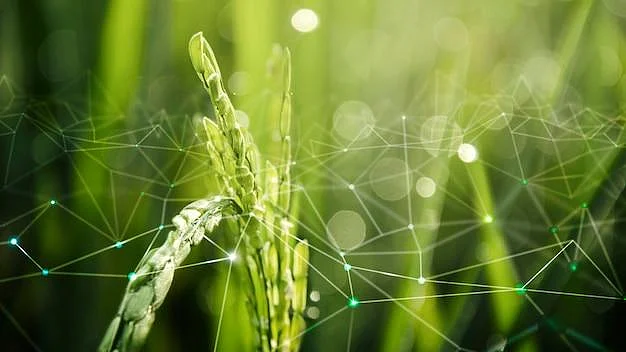In a country where agriculture constitutes the backbone of the economy and livelihood for crores of people, the need for a cleaner, safer, and more efficient food supply chain has never been so high. The Indian farm economy still suffers from chronic issues—be it wastage of food and market inefficiencies or traceability lacunas and distrust among stakeholders. As we move into an age of digital revolution, blockchain technology offers a practical solution to rebuild this trust and bring much-needed discipline to the agri-tech market.
The Problem with the Current Supply Chain
India's supply chain in food is long and dispersed. From the farm producer who harvests the crop to the consumer who buys it from a retail outlet, farm produce passes through a chain of middlemen—traders, carriers, wholesalers, and retailers. The chain is normally marked by a lack of organization, delayed payments, inadequate cold storage, and a lack of any real-time information.
Traceability is the most significant among them. In case a food item is contaminated or of poor quality, it becomes difficult and time-consuming to trace the source. The farmers also tend to remain unaware of the final price at which they receive their produce in the market, making them feel powerless and economically backward.
What is Blockchain and Why Does it Matter?
Blockchain is a digital ledger that records transactions in a secure, open, and tamper-evident manner. However, a central organization does not manage blockchain, unlike a regular database. Every transaction is stamped with the time and distributed to the entire network of people, making it nearly impossible to alter the data once entered.
Revolutionizing Agriculture through Blockchain
While implemented in the agri-tech infrastructure, blockchain can create one single, reliable platform for following the food path from "farm to fork." This is how:
Enhanced Traceability: Every step in a crop's life cycle, from planting and harvesting to storage, transportation, and sale, can be tracked on a blockchain. In the case of a safety problem, the system can quickly trace the contaminated batch back to its origin, facilitating avoidance of health hazards and damage to reputation.
Removing Middlemen and Providing Fair Pricing: Blockchain may enable direct interactions between farmers and buyers through smart contracts—self-executing contracts with digital logic that eliminate middlemen. This can enable farmers to receive better prices for their produce while providing for timely payment.
Food Waste Reduction: Fruits and vegetables can be traced in real-time to identify delays or inefficiencies within the supply chain. If a shipment is late or storage is not utilized, it will reflect in the data, and action can be taken and rectified sooner.
Transparency and Trust: Since every transaction is recorded and traceable, blockchain encourages stakeholders—farmers, distributors, retailers, and consumers—to trust one another. This can boost confidence in the market and even open up export markets, where quality has to be assured.
The Road Ahead: Opportunities and Challenges
While the benefit of blockchain in agriculture is self-evident, its adoption on a large scale in India faces its own set of challenges. Its adoption also requires coordination among policymakers, agri-tech startups, local cooperatives, and technology experts.
However, with growing government efforts to pursue digital agriculture and increased attention from both education providers and entrepreneurs, India is heading in the right direction. Pilot programs introduced in the Andhra Pradesh and Maharashtra states have already shown good returns by increasing transparency in seed distribution and enabling monitoring of crop insurance claims.
Conclusion: A Future Worth Sowing
The journey of blockchain in India's rural economy has only just started, but the potential is huge. It is not just about technology—it is about life change, improved food safety, empowerment of farmers, and a safer food system.
When India embraces blockchain, it can create a basis for a more intelligent, safer agri-tech future where not only is trust built but also ingrained into every transaction.














